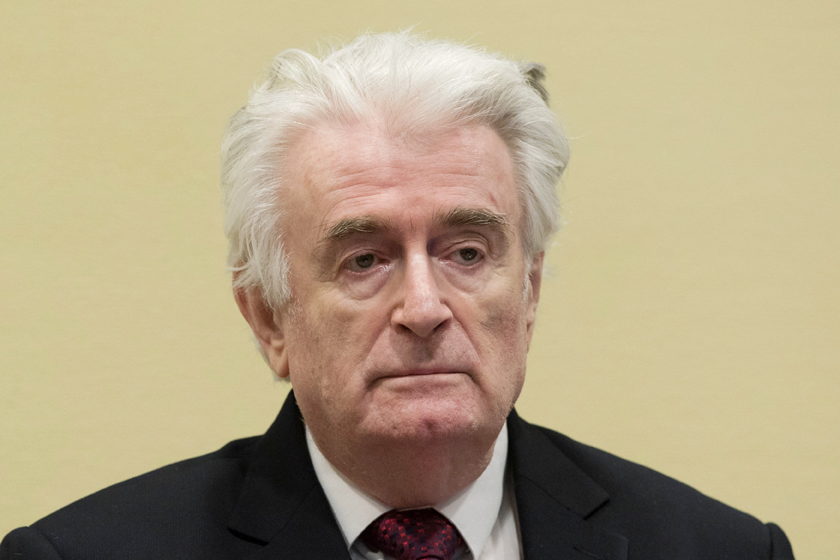Why the Karadzic verdict brings little reassurance to the people of Bosnia

I grew up in a Bosnia divided by people such as Radovan Karadzic, who was also known as spiritual healer Dragan Dabic during his post-war hideout years. The decision on Wednesday by a court at The Hague to reject his appeal against his conviction for genocide, war crimes and crimes against humanity and increase his sentence from 40 years to life in prison brings little comfort to me, a young Bosnian born in Sarajevo at the peak of the siege of the city, which was orchestrated by Karadzic.
As long as the political entrepreneurs who diligently and insidiously work to Balkanize our fragile societies continue to exist, be it in regional governments or their equally artful opposition, the verdict can bring little reassurance or sense of justice.
A poet-turned-psychologist-turned-spiritual healer, Karadzic represents an ideology that is increasingly chipping away at the already veneer-thin peace in Bosnia and, as sad as it makes me, it will not disappear with the appeal court’s verdict.
Half of Bosnia held its breath as the judges upheld Karadzic’s 2016 conviction on 10 counts of genocide, war crimes and other atrocities, including planning the Srebrenica massacre of July 1995. An attempt at ethnic cleansing, the genocide in Srebrenica was the worst atrocity in Europe since the Second World War. The judges also held Karadzic responsible for the siege of my hometown, and Bosnia’s capital, Sarajevo, a campaign of shelling and sniping that lasted for 1,425 days and led to the deaths of more than 10,000 innocent people, including thousands of children.
The genocide in Srebrenica was the worst atrocity in Europe since the Second World War.
Emina Osmandzikovic
All members of my family have been touched by the war, some in Sarajevo during the siege that almost decimated the city, some in Srebrenica during the days of the genocide, forcing them to flee Bosnia as refugees. Unfortunately, there are many families with similar experiences to mine. All of these families that were scarred by the atrocities orchestrated by Karadzic held their breath during his trial and appeal. Unfortunately, the other half of Bosnia held rallies in his support and round-table discussions about the supposed injustice and bias of the International Criminal Tribunal for the former Yugoslavia (ICTY). This reveals the unwavering divisions in the social fabric of my country, which is a consequence of the extremist political entrepreneurship by people such as Karadzic.
For me, as a young Bosnian, the name Radovan Karadzic — or Dragan Dabic — means little and the verdict brings only the tiniest amount of solace, despite the 40 years turned into life in prison, given that his ideology has succeeded in transforming my country into a deeply divided society with disturbingly hostile polarization and an uncertain future.
With additional regional divisions lurking dangerously, Bosnia might become a blueprint for divisions on a global scale, which is a counter-ideology to the ICTY verdict that will live on despite the long overdue incarceration of people such as Karadzic.
• Emina Osmandzikovic is a researcher at the Abu Dhabi-based Trends Research & Advisory. Twitter: @eminaosmandzik










































